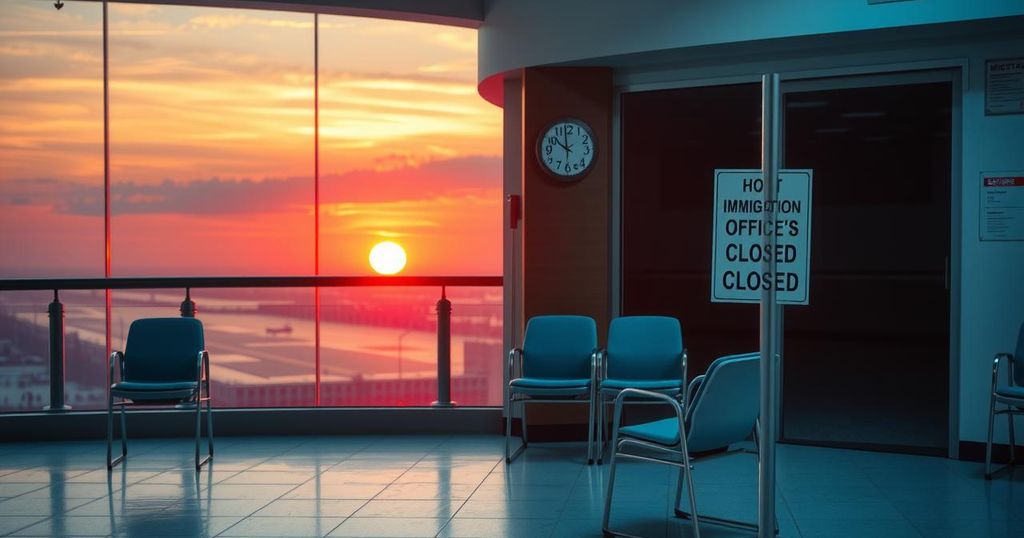U.S. Visa Appointments Canceled in Colombia Over Deportation Flight Dispute
Hundreds of U.S. visa appointments in Colombia were canceled following a diplomatic dispute between the U.S. and Colombia regarding deportation flights. President Trump threatened tariffs on Colombia after President Petro refused to accept repatriation flights, prompting immediate cancellations for many visa seekers. The situation highlights the tensions over U.S. immigration policies and Colombia’s compliance.
In Colombia, hundreds of U.S. visa appointments have been canceled following escalating tensions between the U.S. and Colombian governments concerning the repatriation of deported migrants. The conflict intensified after President Donald Trump threatened Colombia with substantial tariffs and sanctions due to Colombian President Gustavo Petro’s refusal to accept deportation flights, prompting the suspension of appointments for many Colombian visa applicants.
On January 27, 2025, individuals outside the U.S. embassy in Bogota received notifications of their canceled appointments due to the Colombian government’s stance on deportees. The tensions highlighted a clash between Trump’s administration and Petro, indicating potential repercussions for other nations resisting U.S. immigration policies. In response to the diplomatic pressure, Colombia’s Foreign Affairs Ministry announced efforts to facilitate the repatriation of Colombian deportees.
The State Department warned that it would take action if agreements with foreign governments regarding deportations were not adhered to. “This was about reminding Colombia that there is a price to pay if you go against your agreements,” stated spokesperson Tammy Bruce, forcing Colombia to reconsider its decisions promptly. Many Colombian nationals voiced their frustration, having waited long periods for visa appointments, only to face sudden cancellations.
President Petro’s refusal to allow U.S. deportation flights was coupled with a call for enhanced dignity protocols for deported individuals. Negotiations led to a temporary easing of tensions, with Colombia agreeing to resume deportation flights. However, the U.S. maintained certain restrictions until these flights successfully commenced, signaling ongoing scrutiny of Colombia’s cooperation on immigration enforcement.
Visa applicants faced significant delays, as it typically takes years to obtain a U.S. visa in Colombia. Nevertheless, the U.S. remains a primary destination for Colombian travelers, underscoring the importance of resolving these diplomatic disputes for both nations’ interests.
This incident revolves around the diplomatic relations between the United States and Colombia, specifically regarding the repatriation of Colombian nationals. President Trump’s administration has emphasized strict immigration enforcement, threatening sanctions against countries that do not comply. Colombia, under President Petro, expressed concerns about the treatment of deportees, leading to significant cancellations of U.S. visa appointments for citizens. The situation is indicative of the complex interplay between trade, diplomacy, and immigration policy in the region.
In summary, the cancellation of hundreds of U.S. visa appointments in Colombia underscores the fragile diplomatic relations between the two nations amid disputes over deportations. This incident reveals the complexities of immigration enforcement policies and their ramifications on international partnerships. As Colombia navigates its commitments amid U.S. pressure, the situation reflects broader challenges inherent in addressing immigration concerns globally.
Original Source: apnews.com




Post Comment